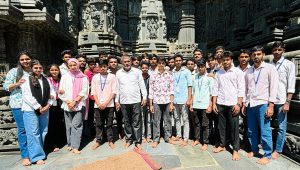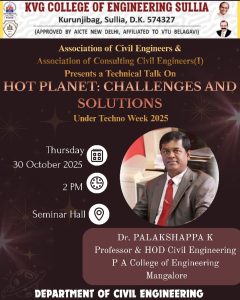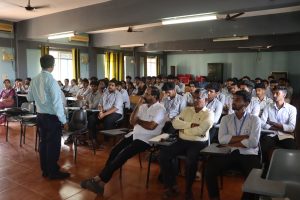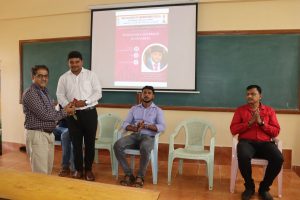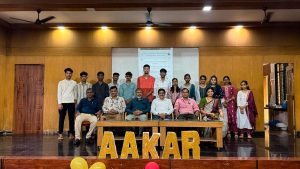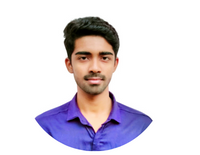HEAD OF THE DEPARTMENT

Dr. Chandrashekhar A
B.E., M.Tech., MIT, Ph.D., MISTE
acs.nitk@gmail.com
08257-231141, 235133
About Civil Engineering
Civil Engineering is the mother branch among all branches and encompasses the planning design, construction, and maintenance of physical infrastructures such as roads, bridges, buildings, airports, water treatment plants, and other public works. It involves applying mathematical and scientific principles to ensure the safety, durability, and sustainability of these structures, while also considering factors like environmental impact, aesthetics, and cost-effectiveness. Civil engineers specialize in various areas, including structural, transportation, water resources, geotechnical, and environmental engineering, and play a crucial role in shaping the built environment and improving the quality of life for communities around the world. Department is committed to providing innovative and high-quality education for our students to acquire the fundamental Knowledge, Skills and Attributes necessary for entry and success in their professional career, supported by latest tools and technology.
To serve as a school of excellence in providing technical education with industry-orientation and to apply engineering knowledge for the current and future challenges in Civil engineering.
M1: Providing effective learner center courses in Civil Engineering to impact strong theoretical and practical knowledge.
M2: Switching over to modern methods of material testing, drafting, surveying, Engineering analysis and design in the field of Civil engineering.
M3: Promoting teamwork to develop research, professional and entrepreneurial skills.
PEO 1: To provide quality education and knowledge in contemporary science and technology to meet the challenges in the field of Civil Engineering and to serve the society.
PEO 2: To impart the knowledge of analysis and design using the codes of practice and software packages.
PEO 3: To inculcate the sense of ethics, morality, creativity, leadership, professionalism, self confidence and independent thinking.
PEO 4: To motivate the students to take up higher studies and innovative research projects.





The department of Civil Engineering at K.V.G. College of Engineering was established in the year of 1986 as the part of institute since from its inception. The program is approved by AICTE and VTU, Belagavi. The department has been in the forefront of advanced research in civil engineering and has also been very pro-active in industrial interaction and technology development.
The Civil Engineering department in KVGCE is known for its excellence in teaching with highly qualified, experienced and dedicated faculty, skilled supporting staff, well established and updated laboratories to latest technologies, excellent infrastructure and disciplined and hardworking students. The department offers undergraduate course (BE) with an intake of 30. Two year Post Graduation programme -M.Tech in Construction Technology was started in 2014 with an intake of 18. The department also has a recognized research centre.
Students are encouraged to participate in co-curricular and extra-curricular activities to acquire leadership qualities. The Association Civil Engineering (ACE) has been functioning for the benefit of the students. It serves as a platform for students to make technical presentations, gain knowledge about recent advancements and bring together novel ideas. This Association aims at bridging the gap between the academic and the industry by inviting renowned industrialists and academicians to interact with students. Guest lectures, industrial visits, site visits, etc., are organized and value added courses are conducted on regular basis to ensure that students are conversant with recent developments in the field of Civil Engineering.
All the faculty members are involved in various department and association activities, R&D activities and consultancy services to the society. The department takes up Third Party inspection of various government organizations like PWD, Panchayathraj Engineering (PRE), Rural water supply and Sanitary engineering, Minor Irrigation, Town Panchayaths etc. in Dakshina Kannada and Kodagu Districts. The department offers consultancy and technical services in Geotechnical Engineering, Highway Materials and Structural Design. The Department is also the advisors for Kodagu Nirmithi Kendra and Dakshina Kannda Nirmithi Kendra.
The department has several MoUs with various construction industries namely Medhini Technologies,Bangalore, CMTI, Bangalore, Adani Cements. The main purpose of these MoUs is to fulfill the gap between academics and the industry. The Department provides internship Program for the students with the help of Alumni & local Engineers.
The Department obtained Life membership of Indian Concrete Institution. Our faculty members are Life members of many professional bodies like ACCE(I), IRC, IE, ISTE, IASTR.
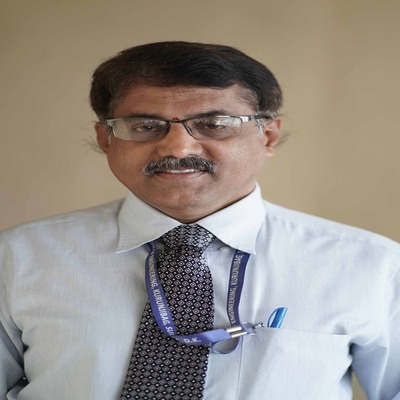
Dr. Chandrashekhara A
Professor & HOD B.E., M.Tech., MIT, Ph.D., MISTE
Experience: 33 years
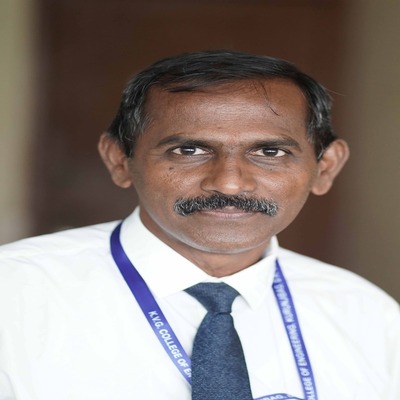
Prof. Arun Kumar H
Associate Professor B.E., M.Tech
Experience: 30 years
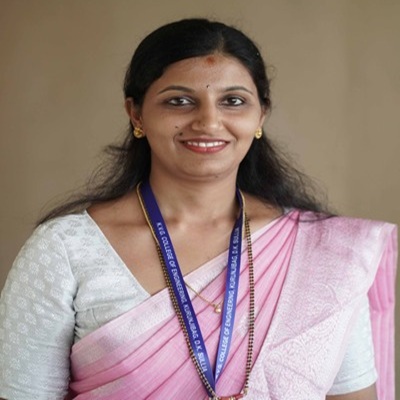
Dr. Lekha B M
Associate Professor B.E., M.Tech.,Ph.D.
Experience: 11 years
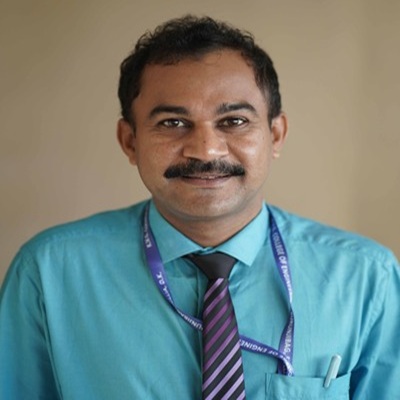
Prof. Ajith B T
Associate Professor B.E., M.Tech.
Experience: 17 years
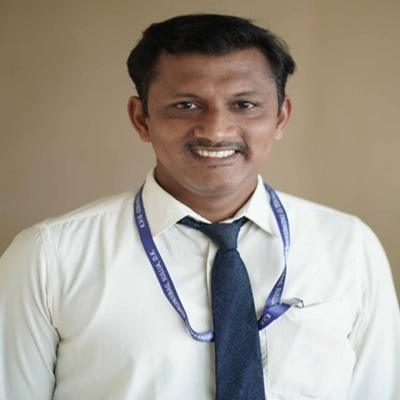
Prof. Krishnaraj M V
Assistant Professor B.E., M.Tech.
Experience: 10 years
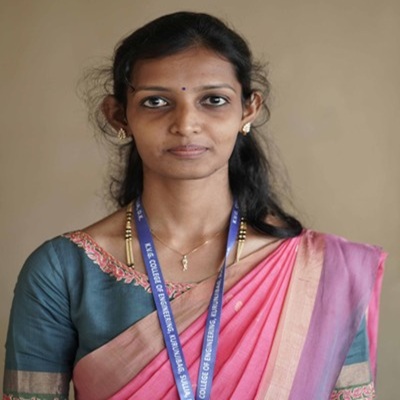
Prof. Ashwija K C
Assistant Professor B.E., M.Tech
Experience: 12 years
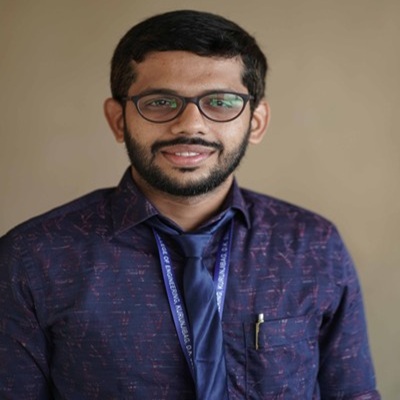
Prof. Abdul Mujeeb
Assistant Professor B.E., M.Tech.
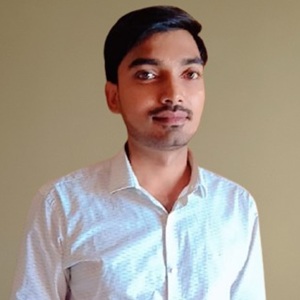
Prof. Lakshminarayana N
Assistant Professor B.E., M.Tech.
Experience: 08 years

Dr. Chandrashekhara A
Professor & HOD B.E., M.Tech., MIT, Ph.D., MISTE
Experience: 33 years

Prof. Arun Kumar H
Associate Professor B.E., M.Tech
Experience: 30 years

Dr. Lekha B M
Associate Professor B.E., M.Tech.,Ph.D.
Experience: 11 years

Prof. Ajith B T
Associate Professor B.E., M.Tech.
Experience: 17 years

Prof. Krishnaraj M V
Assistant Professor B.E., M.Tech.
Experience: 10 years

Prof. Ashwija K C
Assistant Professor B.E., M.Tech
Experience: 12 years

Prof. Abdul Mujeeb
Assistant ProfessorB.E., M.Tech.

Prof. Lakshminarayana N
Assistant Professor B.E., M.Tech.
Experience: 08 years
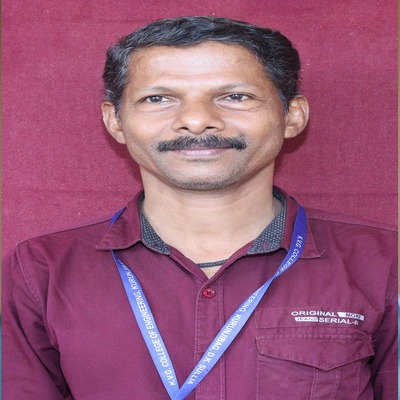
Mr. Ananda M
Lab Instructor
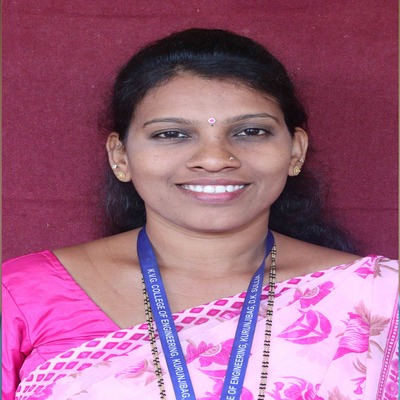
Mrs. Dhanyashree N P
Lab Instructor
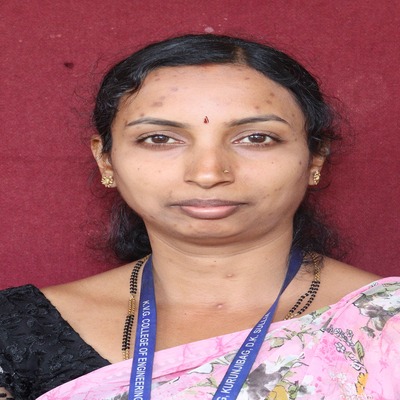
Mrs. Dhanya kumari N K
Lab Instructor

Mrs. Jayashree K S
Attender

Mr. Ananda M
Lab Instructor
Mrs. Dhanyashree N P
Lab Instructor
Mrs. Dhanya kumari N K
Lab Instructor
Mrs. Jayashree K S
AttenderOne Day field visit for real-world learning
Hot Planet Challenges & Solutions
Engineering from school to field
Talk on the Sustainable materials
Engineers Day celebration
Civil Engineering Department Laboratories at KVG College of Engineering
1. Concrete and Highway Material Testing Lab
Our Concrete and Highway Material Testing Lab is equipped with the latest tools and technologies for testing the properties and performance of various construction materials. The lab focuses on the strength, durability, and quality of concrete and other materials used in highway construction. It provides students with hands-on experience in:
- Concrete mix design
- Aggregate testing
- Bitumen testing
- Pavement material evaluation
2. Building Material Testing Lab
The Building Material Testing Lab is dedicated to the study and analysis of construction materials. It supports learning about the physical and chemical properties of materials such as cement, sand, bricks, and steel. Key features include:
- Material identification and classification
- Mechanical property testing
- Non-destructive testing methods
- Durability assessment
3. Geotechnical Engineering Lab
Our Geotechnical Engineering Lab provides facilities for testing soil and rock properties to understand their behavior under various conditions. The lab supports activities such as:
- Soil classification and compaction tests
- Permeability and consolidation tests
- Shear strength and bearing capacity analysis
- Slope stability studies
4. Environmental Engineering Lab
The Environmental Engineering Lab is designed to study the impact of engineering projects on the environment. It focuses on the analysis and treatment of water, wastewater, and air samples. Students learn about:
- Water quality testing
- Wastewater treatment processes
- Air pollution monitoring
- Environmental impact assessment
5. Computer Aided Design and Software Application Lab
Our Computer Aided Design (CAD) and Software Application Lab provides state-of-the-art computer facilities and software tools for design and analysis. It supports:
- CAD modeling and drafting
- Structural analysis and design software
- GIS and remote sensing applications
- Simulation and modeling software
6. Applied Engineering Geology Lab
The Applied Engineering Geology Lab enables the study of geological factors that affect civil engineering projects. It includes:
- Rock and mineral identification
- Geological mapping and field studies
- Geophysical survey techniques
- Hydrogeological investigations
7. Fluid Mechanics and Hydraulic Machinery Lab
In the Fluid Mechanics and Hydraulic Machinery Lab, students explore the principles of fluid mechanics and the operation of hydraulic machines. The lab includes:
- Flow measurement devices
- Pump and turbine testing
- Fluid flow visualization tools
- Hydraulic modeling
8. Geodetic Engineering Lab
The Geodetic Engineering Lab is equipped for precise measurement and mapping of the Earth's surface. It focuses on techniques and instruments used in surveying and mapping. Key activities include:
- GPS and total station surveys
- Leveling and traversing
- Geospatial data analysis
- Cartography and mapping
Visit Us
Explore our state-of-the-art laboratories at KVG College of Engineering, where innovation meets practical learning. Our facilities provide students with the skills and knowledge needed to excel in the field of civil engineering.
Internship 2024 - 2025
Internship 2023 - 2024
Following Are The Companies Which Carried The Internship Program For The Year 2020-2021
Following Are The Companies Which Carried The Internship Program For The Year 2019-2020
PO 1: Engineering Knowledge: To apply the knowledge of mathematics, science, engineering fundamentals, and an engineering specialization to the solution of complex engineering problems
PO 2: Problem Analysis: Identify, formulate, review research literature, and analyze complex Engineering problems reaching substantiated conclusions using first principles of mathematics, natural sciences, and engineering sciences.
PO 3: Design/Development of Solutions: Design solutions for complex engineering problems and design system components or processes that meet the specified needs with appropriate considerations for the public health and safety, and the cultural, societal, and environmental considerations
PO 4: Use research-based knowledge and research methods including design of experiments, analysis and interpretation of data, and synthesis of the information to provide valid conclusions.
PO 5: Create, select, and apply appropriate techniques, resources, and modern engineering and IT tools including prediction and modeling to complex engineering activities with an understanding of the limitations.
PO 6: Apply reasoning informed by the contextual knowledge to assess societal, health, safety, legal and cultural issues and the consequent responsibilities relevant to the professional engineering practice.
PO 7: Understand the impact of the professional engineering solutions in societal and environmental contexts, and demonstrate the knowledge of, and need for sustainable development.
PO 8: Apply ethical principles and commit to professional ethics and responsibilities and norms of the engineering practice.
PO 9: Function effectively as an individual, and as a member or leader in diverse teams, and in multidisciplinary settings.
PO 10: Communicate effectively on complex engineering activities with the engineering community and with society at large, such as, being able to comprehend and write effective reports and design documentation, make effective presentations, give and receive clear instructions.
PO 11: Demonstrate knowledge and understanding of the engineering and management principles and apply these to one’s own work, as a member and leader in a team, to manage projects and in multidisciplinary environments.
PO 12: Recognize the need for, and have the preparation and ability to engage in independent and life-long learning in the broadest context of technological change
- By the end of the undergraduate programme in CSE, graduates will be able to:
PSO1 : PROBLEM SOLVING SKILLS Specify, design, build and test analog, digital and embedded systems for signal processing
PSO2 : PROFESSIONAL SKILLSUnderstand and architect wired and wireless analog and digital communication systems as per specifications, and determine their performance
PSO3 : ETHICS AND CAREER DEVELOPMENTExhibit skills required for a successful career in the industry based on principles of software project management, teamwork, ethical practices, develop the spirit of free enterprise and provide innovative ideas towards analysis.


